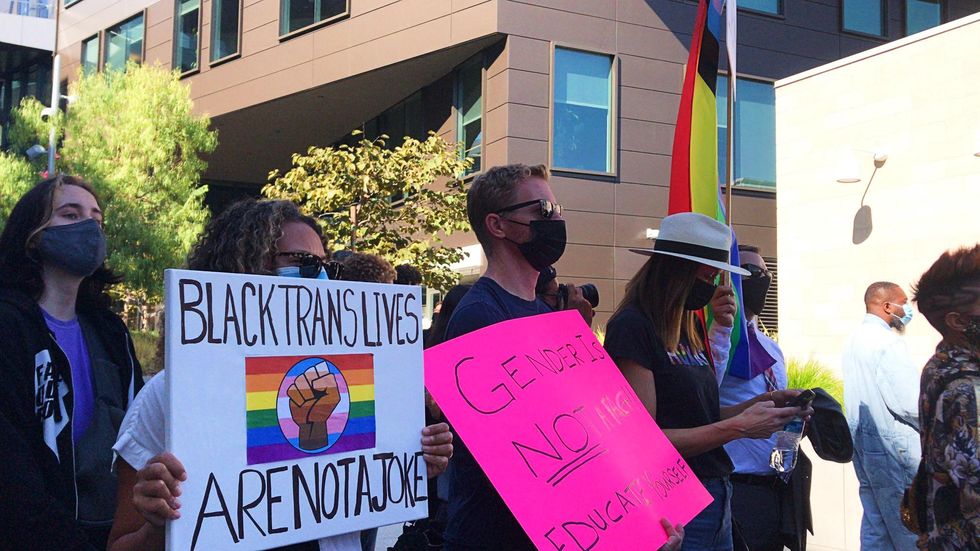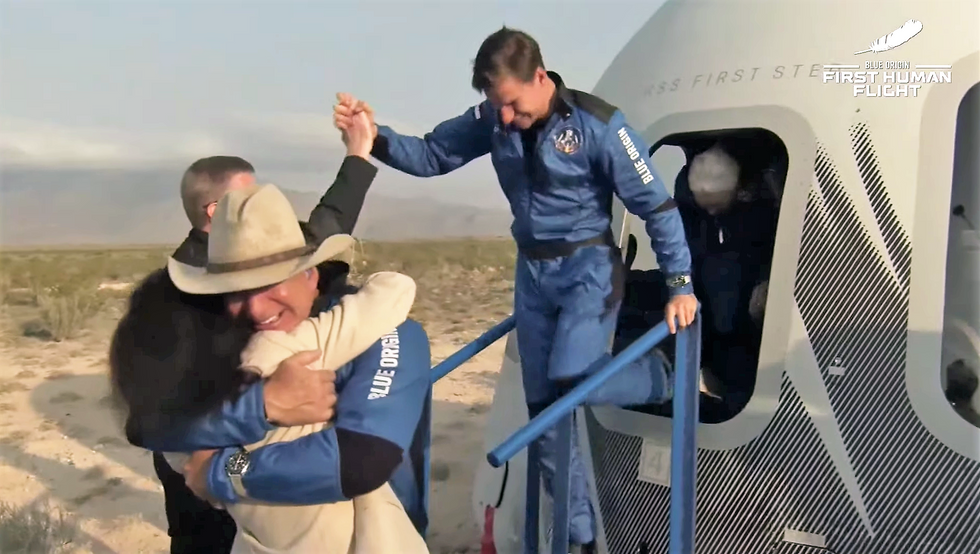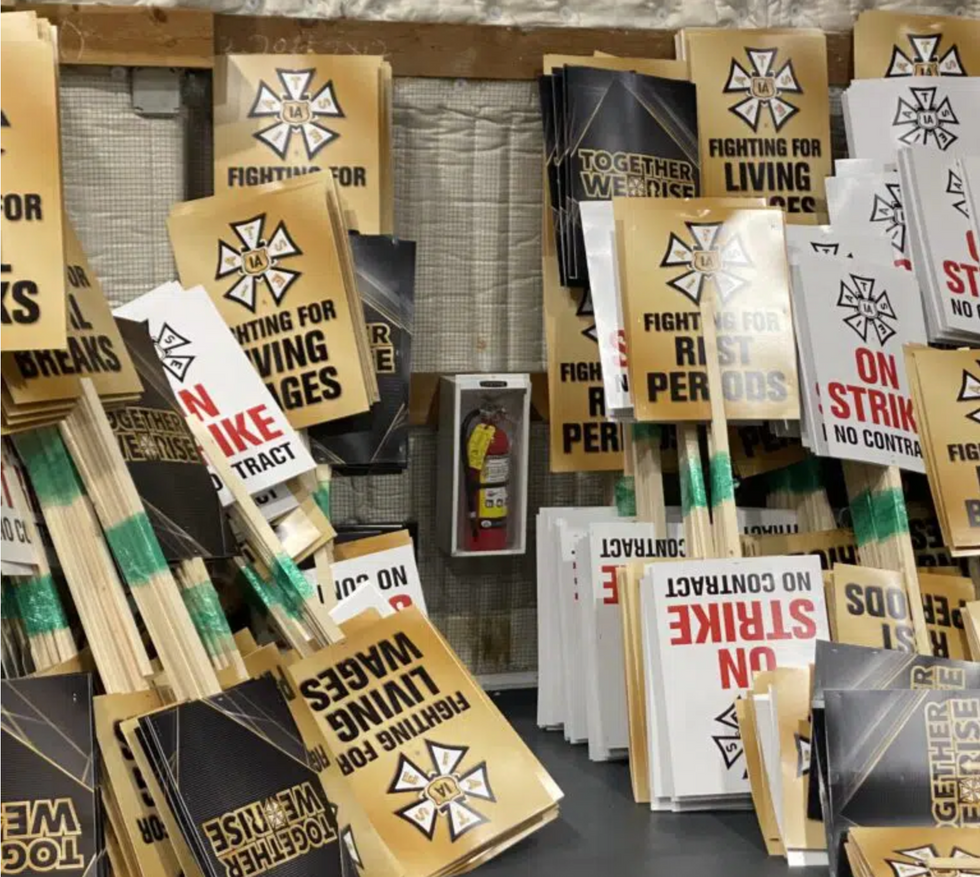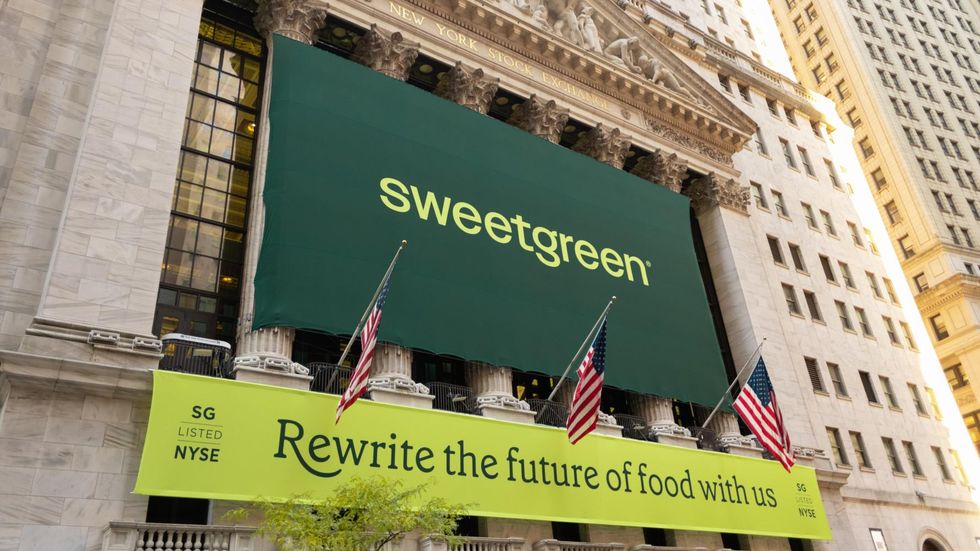Big Stories that Shook the Tech World in 2021
Harri is dot.LA's senior finance reporter. She previously worked for Gizmodo, Fast Company, VentureBeat and Flipboard. Find her on Twitter and send tips on L.A. startups and venture capital to harrison@dot.la.

The pandemic raged on in 2021, forcing Californians to grapple with lockdowns and troubling variants while tech giants pushed their return to offices in perpetuity. Through it all, tech’s boom time largely carried on as startups notched new fundraising records, thanks in no small part to blockchain hype, NFTs and web3.
Yet the exuberance was measured by weak IPOs, political pressure, and roaring demands from workers at Activision Blizzard, Netflix and Amazon, which altogether offered a taste of accountability for leaders in the industry. These and other key stories defined a whirlwind year for big tech and startups alike.
1. Tech Workers Speak Out

Through several walkouts and an open letter calling for CEO Bobby Kotick’s resignation, Activision Blizzard employees repeatedly pressed the game maker in the second half of the year over its handling of reports of gender inequality, harassment, and retaliation.
Workers urged the company to address its "frat boy" culture and end forced arbitration, while the “Call of Duty” and “Candy Crush” publisher warned employees to “consider the consequences” of unionizing.
At Netflix, workers and counter protestors clashed over an incendiary stand-up special from Dave Chappelle. GLAAD, the LGBTQ advocacy group, criticized the multi-million dollar production, saying “Chappelle’s brand has become synonymous with ridiculing trans people and other marginalized communities.” In response to criticism, co-CEO Ted Sarandos said Netflix has a "strong belief that content on screen doesn't directly translate to real-world harm."
Meanwhile, Amazon faced protests across 22 countries this year over its wages, taxes, and impact on the planet. In Los Angeles, progressive advocacy groups Courage California and the Los Angeles Alliance for a New Economy hosted a virtual town hall for Amazon workers over its warehouse policies on Cyber Monday.
2. Streaming Shakes Up Hollywood
In the movie business, organized workers challenged Netflix, Apple, Disney, and Amazon over a contract that sets pay and quality-of-life standards for tens of thousands of behind-the-scenes crew members.
The standoff nearly ground production to a halt in Hollywood, and came as streaming giants won big at the Academy Awards and the Emmys. Ultimately, the crew members’ union (the International Alliance of Theatrical Stage Employees) narrowly passed a new three-year deal, but not by popular vote, indicating an appetite for pushback in the years to come.
3. Political Pressure Ramps Up
It was a banner year for congressional committees and hearings, although few if any national laws targeting tech came to pass thanks to a deadlocked Congress.
Leaders at Facebook and Google defended their practices while lawmakers probed their role in the Jan. 6 Capitol attack. And Santa Monica-based Snap, TikTok and YouTube fielded questions on social media drug sales and child safety issues while distancing themselves from Facebook.
However, California instituted a number of laws aimed in part at tech, including a rule requiring warehouses to disclose productivity quotas and new protections for workers who speak out about discrimination and harassment. Plus, a state judge ruled California’s gig worker law Prop. 22 unconstitutional, though the battle over the ballot initiative is far from over.
4. Billionaires Touch Space

Billionaires Jeff Bezos, Richard Branson and Shift4 Payments founder Jared Isaacman literally reached for the stars this year in rockets produced by SpaceX, Blue Origin and Virgin Galactic.
The events launched a new era of private space travel, and raised questions over who gets to go to space, who pays for it, and the environmental cost of our interstellar dreams.
Elon Musk’s personal space travel plans, however, remain a mystery.
5. EVs Get Their Moment
As extreme weather hammered the globe, investors plowed funds into climate tech — a vast sector featuring experimental carbon capture machines, electric bikes and scooters, hydrogen cars, heat pumps and everything in between.
Electric vehicles in particular stole the show this year as public investors sent Tesla’s and Rivian’s market caps into the stratosphere. Though Rivian’s stock has since cooled off amid supply issues, at its height it topped the market caps of GM, Ford and Volkswagen while reporting little to no revenue.
A major infrastructure bill pushed by the Biden Administration could also rev up electric car sales. If it passes next year, it could give consumers a tax break on the cars and accelerate the development of a nationwide charging network.
6. Mega Deals: the New Normal

Whether we’re in a tech bubble or not, this year startup valuations and deal counts soared as outside cash poured into the scene. In October, Pitchbook released a report counting 600 mega-deals (funding rounds of at least $100 million) this year in the U.S. alone — 138% more than it saw in the entirety of 2019. The data firm attributed the jump in part to a surge of funding from hedge funds and other non-traditional investors.
While many reports on the final quarter of the year are due out in January, seed deals hit new highs in L.A. during the first half of 2021. The pattern continued in the third quarter, mirroring the global trend. Among the driving forces was Web3, a term encompassing everything from speculative blockchain tech and cryptocurrencies to NFT-landen mobile games.
7. Tech Races to Go Public -- and Stumbles
Apple, Microsoft, Google and plenty of other major tech stocks surged this year, but most newcomers to the public market stumbled in 2021. From their debuts, investment app Robinhood’s stock dropped 45% to about $19 per share, salad maker Sweetgreen slipped about 43% to nearly $28 per share, wine subscription company Winc fell around 60% to $4.81 per share, and scooter giant Bird declined about 10% to 7.47 per share (all as of December 17).
Many tech firms went public (or at least announced plans to do so) through special-purpose acquisition companies, or SPACs. These shell companies have risen in popularity in recent years as vehicles to take businesses public, typically speedier and at a lower upfront cost than a traditional IPO. However, the Securities and Exchange Commission has scrutinized the practice and cautioned investors about the risks involved in such deals, which typically perform worse than traditional IPOs.
That doesn’t mean SPACs will disappear in 2022. A number of tech firms are poised to go public via SPACs, including fraud prevention firm TeleSign and digital banking company Dave, and United Talent Agency recently launched its own gaming-focused SPAC on the Nasdaq.
- Outer Founders on Why 2021 Could Be Their Best Year Yet - dot.LA ›
- Los Angeles Tech and Startups 2020 Year in Review - dot.LA ›
Harri is dot.LA's senior finance reporter. She previously worked for Gizmodo, Fast Company, VentureBeat and Flipboard. Find her on Twitter and send tips on L.A. startups and venture capital to harrison@dot.la.







 Image Source: Revel
Image Source: Revel
